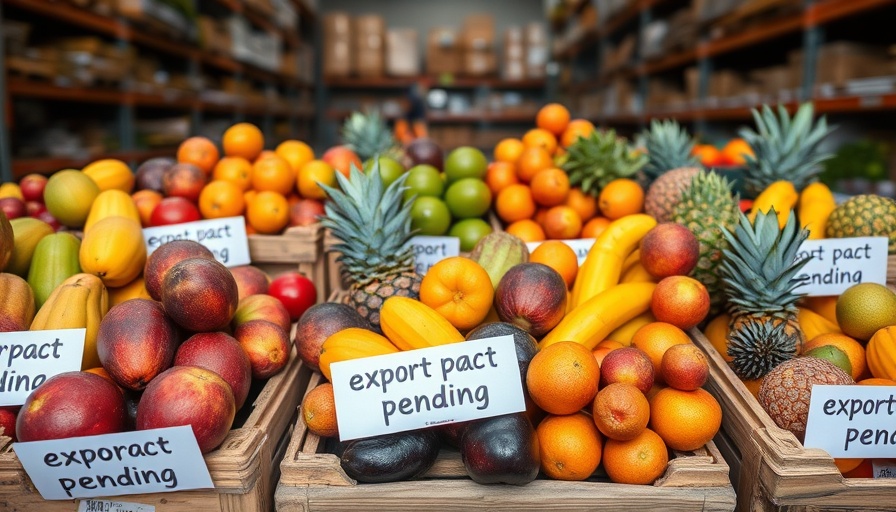
Introduction: The Implications of SARS' Withdrawal of Concessions
On March 20, 2025, the South African Revenue Service (SARS) Commissioner announced a significant shift in policy regarding concessions previously granted to clients and traders operating under the Customs and Excise Act of 1964. This decision comes amidst ongoing reviews of compliance and aims to eliminate reliance on outdated agreements that may hinder the effectiveness and integrity of the customs framework.
Understanding the Concessions at Stake
Concessions in customs typically refer to allowances or exceptions made to facilitate trade. They can involve simplified procedures or modified regulations that certain businesses leverage to operate more efficiently. However, the recent determination by SARS to withdraw these concessions raises questions about the sustainability of business practices that have become reliant on these allowances. With the formal withdrawal, businesses must now reassess their operations in a stringent legal environment.
Historical Context and Background of SARS Concessions
The origins of the Customs and Excise Act date back several decades, with multiple revisions aimed at adapting to the changing landscape of international trade. Initially, concessions were introduced to bolster economic activity, allowing businesses to thrive despite regulatory hurdles. Yet, the world has drastically changed with the emergence of global threats such as pandemics, which have introduced new layers of complexity to importation and exportation processes. A robust compliance framework is essential to mitigate risks associated with trade, thus enforcing stricter regulations aligns with global health protocols and trade stability.
Current Context and Relevance to Trade Compliance
The context of SARS' decision is further intensified by heightened scrutiny of practices that could potentially compromise public health and safety. COVID-19 highlighted vulnerabilities in global supply chains and the necessity for heightened customs scrutiny. The withdrawal of concessions, while challenging for businesses, underscores the integral role of compliance in a world increasingly sensitive to health regulations. Customs practices that permit deviations may conflict with public health measures necessary to control outbreaks, thus making strict adherence to the law paramount.
Impact on Stakeholders: Businesses and Public Policy
The withdrawal of these concessions can significantly impact stakeholders across the board—from small businesses that might struggle to meet new requirements to larger corporations that previously enjoyed leniency. As public policy increasingly shifts to prioritize health and compliance, businesses will face the challenge of navigating these new regulatory waters. Moreover, the government’s approach signals a substantial pivot that demands alignment with broader public health imperatives.
Counterarguments and Diverse Perspectives
While the intention behind the withdrawal of concessions may seem clear, there are voices within the business community that question the timing and implications of such a drastic move. Critics argue that the abrupt withdrawal could stifle economic growth, particularly for small businesses that are less equipped to adapt quickly. They call for a more gradual phase-out or the introduction of transitional measures to ease compliance burdens. Balancing public health with economic recovery remains a contentious debate among stakeholders.
Actionable Insights for Businesses Moving Forward
For enterprises affected by this policy change, several actionable steps can facilitate a smoother transition: 1. **Review Compliance Protocols**: Businesses must conduct thorough reviews of their current customs practices and identify areas needing adjustment to comply with the stricter regulations. 2. **Consult with Experts**: Engaging trade compliance specialists can help navigate the complexities of export and import regulations, ensuring that businesses remain compliant while reducing operational disruptions. 3. **Advocate for Fair Policy Development**: Businesses should actively engage with trade associations and policy-makers to ensure their voices are heard in discussions of future regulations. This collaboration can lead to more balanced policies that consider both public health and economic vitality.
Conclusion: Aligning Interests for Sustainable Trade Practices
The formal withdrawal of concessions by the SARS Commissioner marks a pivotal point in the evolution of South African customs and trade practices. As the agency seeks to enhance regulatory adherence, the onus lies on businesses to adapt. By fostering dialogue with government entities and restructuring operations, companies can ensure compliance while contributing to a healthier trading environment. With public health and compliance becoming focal points in global trade discussions, businesses must align their operations accordingly to thrive in this changing landscape.
 Add Row
Add Row  Add
Add 




Write A Comment